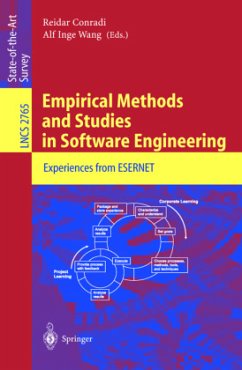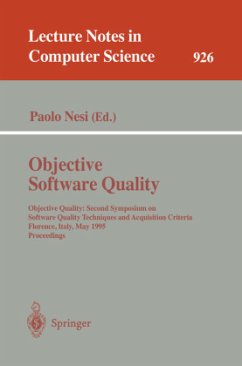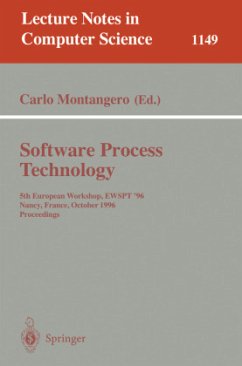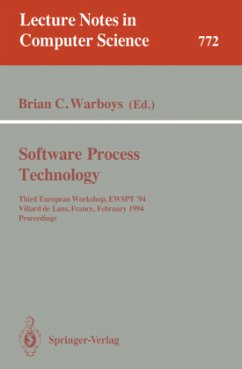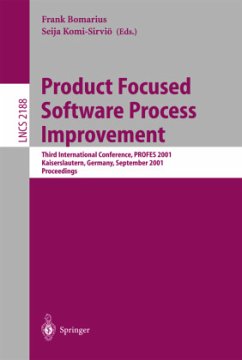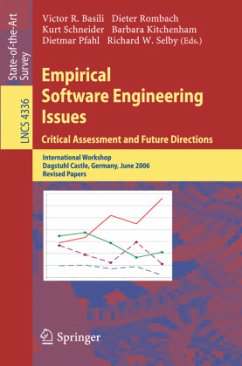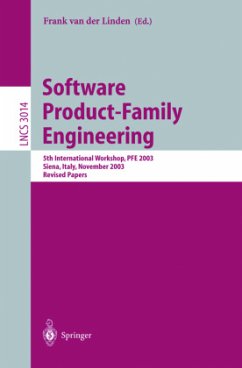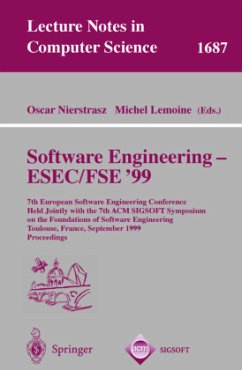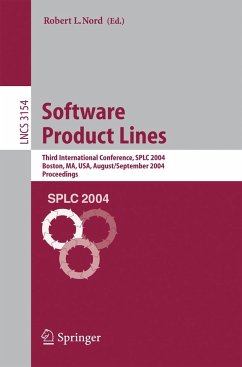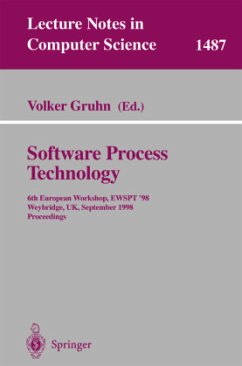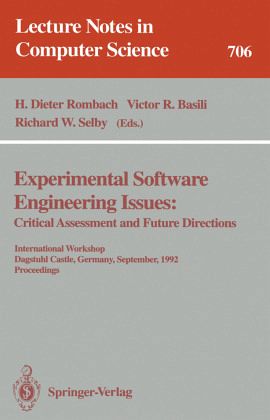
Experimental Software Engineering Issues:
Critical Assessment and Future Directions. International Workshop, Dagstuhl Castle, Germany, September 14-18, 1992. Proceedings
Mitarbeit: Rombach, H. D.; Basili, Victor R.; Selby, Richard W.
Versandkostenfrei!
Versandfertig in 1-2 Wochen
39,99 €
inkl. MwSt.

PAYBACK Punkte
20 °P sammeln!
We have only begun to understand the experimental nature ofsoftware engineering, the role of empirical studies andmeasurement within software engineering, and the mechanismsneeded to apply them successfully. This volume presents theproceedings of a workshop whose purpose was to gather thosemembers of the software engineering community who support anengineering approach based upon empirical studies to providean interchange of ideas and paradigms for research.The papers in the volume are grouped into six partscorresponding to the workshop sessions: The experimentalparadigm in software engineerin...
We have only begun to understand the experimental nature ofsoftware engineering, the role of empirical studies andmeasurement within software engineering, and the mechanismsneeded to apply them successfully. This volume presents theproceedings of a workshop whose purpose was to gather thosemembers of the software engineering community who support anengineering approach based upon empirical studies to providean interchange of ideas and paradigms for research.The papers in the volume are grouped into six partscorresponding to the workshop sessions: The experimentalparadigm in software engineering; Objectives and context ofmeasurement/experimentation; Procedures and mechanisms formeasurement/experimentation; Measurement-based modeling;packaging for reuse/reuse of models; and technologytransfer, teaching and training. Each part opens with akeynote paper and ends with a discussion summary.The workshop served as an important event in continuing tostrengthen empirical software engineering as a majorsubdiscipline ofsoftware engineering. The deep interactionsand important accomplishments from the meeting documented inthese proceedings have helped identify key issues in movingsoftware engineering as a whole towards a true engineeringdiscipline.





